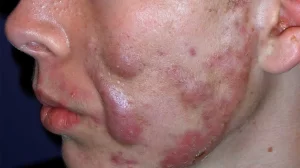
How to Choose an Acne Face Mask
Acne facial masks can help treat breakouts and prevent future breakouts by treating breakouts and blemishes as they form, but selecting an effective one is paramount.
Look for a formula with safe ingredients that unclog pores, such as cotton. Choose a mask that allows airflow into the skin for proper breathing and wash it after every use to prolong its effectiveness.
1. Exfoliate
No matter if it is just occasional hormonal breakouts during your period or cystic acne, a weekly mask session can help combat and prevent future breakouts. Look for one with clarifying properties to remove oil, dirt and dead skin cells–components responsible for many blemishes.
Look for masks that contain chemical exfoliants (such as glycolic acid or salicylic acid), enzymatic exfoliants (fruit enzymes like papaya) or physical exfoliants such as sand or shells to avoid irritating your skin with harsh scrubs or pads. Or make your own natural scrub using sugar, olive oil and honey or mix green tea and honey into a green tea and honey solution!
The Clarifying Treatment Mask contains sulfur, aloe and bisabolol to deep clean your pores to combat existing breakouts and prevent new ones from occurring. Use once to three times weekly for best results – available from a Skincare Professional near you.
2. Hydrate
Keep your skin cells hydrated with this easy DIY mask featuring ingredients like honey and oatmeal. Oats’ anti-acne properties help prevent breakouts while honey acts as an excellent natural moisturizer; for optimal results use this face mask once every week as part of your skincare regimen.
Hydrating face masks help other products such as lotions and serums work more effectively on your skin by clearing away clogged pores and helping the body absorb things faster.
This mask contains all of the good stuff–from niacinamide to kaolin for cleansing away excess oil from skin.
This purifying mask boasts an abundance of minerals such as kaolin and bromelain to unclog pores and eliminate blackheads quickly, making this one of the top acne face masks on the market today. Jojoba oil also helps control oil production and soothe your skin – an added benefit!
3. Reduce Inflammation
As acne is caused by inflamed skin, applying a face mask formulated with anti-inflammatory ingredients may help soothe it and reduce redness and swelling.
Face masks can clog pores by trapping sweat and oil that would normally escape through pores throughout the day, leading to clogged pores and breakouts in hot or humid environments. They should only be applied at bedtime.
A good face mask for acne will contain ingredients to soothe inflammation, like soothing botanicals and vitamin E. Clay masks are ideal for relieving oily build-up while peel-off masks allow you to see gunk slough off as you peel (just ensure there is no glue present which strips skin of its natural moisture barrier). In addition, clarifying extracts like willow bark may be used gently exfoliate clogged pores as well as soothing ingredients like aloe vera and bisabolol to calm inflammation and prevent future breakouts.
4. Prevent Breakouts
If your skin is particularly delicate, a mask could aggravate its condition and even lead to breakouts. A milder cleanser might also be best.
Acne breakouts are often caused by clogged pores that become blocked with excess oil, dead skin cells, makeup debris or bacteria. A mask creates the perfect environment for acne by covering the face in a warm and humid atmosphere where sweat, oils, debris and sweat accumulate to clog hair follicles and cause inflammation in follicles resulting in flare ups of acne.
Masks may not provide long-term solutions to acne, but they can provide temporary relief by soothing inflamed skin and helping prevent breakouts. You can lower the chances of an adverse reaction by cleansing with a gentle fragrance-free cleanser regularly while washing with non-comedogenic moisturizer. Also important: avoid touching or picking at your skin as this can transfer oils that exacerbate conditions; in the event that a breakout does occur don’t pop the zits or use chemical peels – these could only make matters worse!


